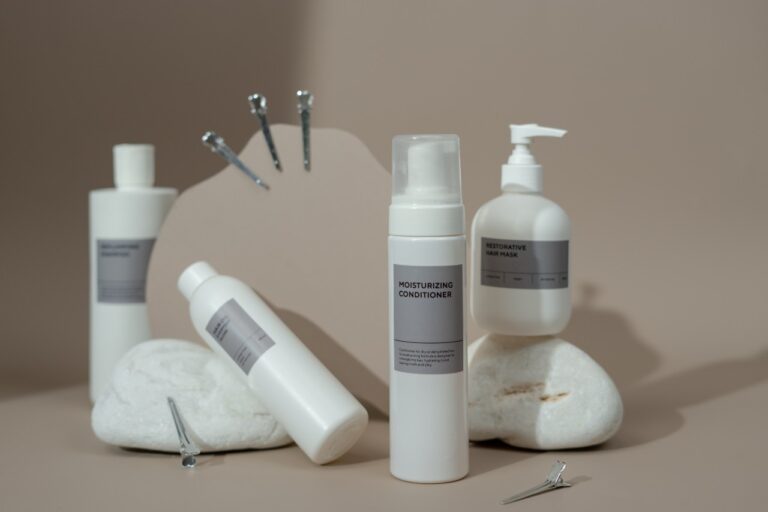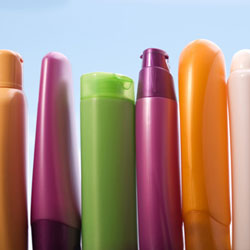
"Beware the cosmetics aisle!"
How safe are your everyday toiletries?
By Amy Anastasopoulos
Editor of Health & Wellness
ProTem, Glendon’s Bilingual Newspaper
You wake up in the morning and head for the washroom. You wash your face. You wash your hair with shampoo and perhaps conditioner. You scrub your body with soaps and gels. You moisten with lotions, potions, and powers, add deodorant, hair de-frizzers, gels, hairspray, and curling / straightening creams. Many ladies will also add foundations, powders, mascara, eyeliners and shadows, and lipstick. Add some cologne or perfume. Don’t forget to brush those teeth!
By the time you’re finished, you’ve slathered, coated, and sprayed yourself with a handful of different products. And if you’ve ever looked at the ingredients list of those products, you’ll know that many of them have lengthy, unpronounceable names. Light reading it isn’t! But have you ever stopped to wonder what the heck those ingredients actually are? What do they do?
And get this: only 11% of skincare products have been tested for safety…that leaves 9000 untested ingredients just lurking in your everyday toiletries! Some are allergens, others irritants, and there’s also the possibilty that some are toxic and cancerous. Take nanoparticles, for example. They go by the fancy names of crystals, beads, or microspheres, but they’re actually non-washable. Instead of being swept down the drain in the shower, they burrow into your skin, find their way into your red blood cells, and invade the brain. Long-term consequences? Unknown. Sounds like something you want to stay away from, right?
 How about petrolatum? More commonly known as petroleum jelly, it’s found in everything from shampoos, conditioners, and moisturizers to Styrofoam and gasoline. Yup! The stuff you’re putting in your car is also what you’re rubbing your scalp with! It can sometimes be contaminated with polycyclic aromatic hydrocarbons (PAHs), and studies have shown that exposure to PAHs is associated with cancer. In the European Union, use of petrolatum in cosmetics has been banned unless its full refining history is known and it is proven to be non-cancerous. Such a restriction does not exist in Canada.
How about petrolatum? More commonly known as petroleum jelly, it’s found in everything from shampoos, conditioners, and moisturizers to Styrofoam and gasoline. Yup! The stuff you’re putting in your car is also what you’re rubbing your scalp with! It can sometimes be contaminated with polycyclic aromatic hydrocarbons (PAHs), and studies have shown that exposure to PAHs is associated with cancer. In the European Union, use of petrolatum in cosmetics has been banned unless its full refining history is known and it is proven to be non-cancerous. Such a restriction does not exist in Canada.
Now this isn’t meant to scare you away from buying products or to imply that there’s an immediate threat to your heath and safety, but you should stop and think about your own personal care and cosmetic habits. Remember that not all moisturizers, cleansers, and perfumes wash away; some can dig into your skin and, if accumulated over time, could pose future problems.
- Tags : cosmetics, personal care, safe toiletries, safety


